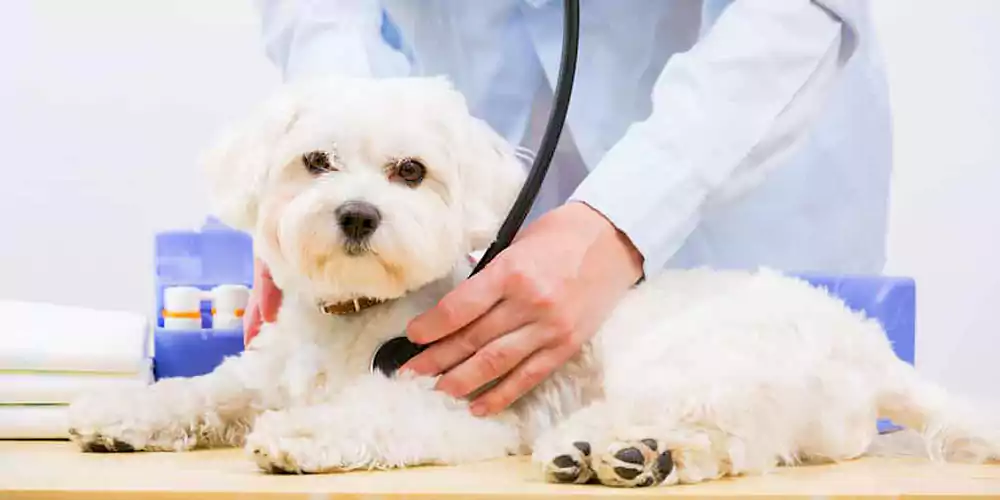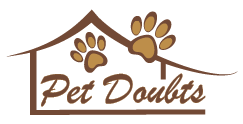9 Common Mini Goldendoodle Health Issues

When you adopt a new friend into your house. So, you are curious to know about his nature, temperament, and health issues. All know the mini goldendoodle famous for their friendly and outgoing personality and hypoallergenic coat.
They are loving and like socializing with others. They are also easy to train since they are energetic and eager to please. It’s pathetic to realise that your furry friend is under the weather. Getting ridding this situation, you must know all the basic mini Goldendoodle health issues.


Goldendoodles are wonderful family dogs since they get along well with kids and other pets. The Golden Doodle was created by combining the most extraordinary qualities of both parent dogs. They are as smart and don’t shed like poodles but are also as devoted and loving as golden retrievers. Doodles are among the best pets to add to any family because of their friendly nature.
Apart from possessing an advanced intellect, Poodles vary in size, which is determined by the kind of Poodle their parents are. The size of this breed ranges from Mini to Standard Poodle. It’s important to know the health hazards that any Golden Doodle, regardless of size, may encounter so that you can watch for common problems before they become serious ones.
Eyes Problems


Is your doodle staring at you strangely? They may not be emptying their dish for that reason. Doodles can suffer from various eye conditions and illnesses like many other breeds. When your doodle’s eyes are red, pensive, or blinking, he’s going through an eye problem.
Eye Infection in Mini Goldendoodle
Both human and canine eyes can get infected. An eye infection is evident by crusty lids, yellowish discharge, squinting, or blinking.
Eyes Dryness
Is the eye irritation or inflammation affecting your mini poodle? For several breeds, dry eyes are a prevalent issue that’s frequently inherited. This illness usually affects both eyes, so your dog might need to use some specific drops to feel better.
Allergies in Mini Goldendoodle
Does your Goldendoodle look weird, and does he/she feel itchy, irritated, and unhappy? Then, he/she is facing an allergy problem or can be affected by environmental allergies, causing their eyes to become red and irritated.
The pollen and dander in the air are beyond your control, but you may lessen their effects by providing an antibiotic eye treatment. And I suggest going to the vet and taking the advice of animal doctors.
Allergies can be brought on by food, other chemicals, or environmental conditions (dust, pollen, mould, cigarette smoke, etc.).


Von Willebrand Disease
Golden Retrievers and Poodles, in particular, are prone to von Willebrand disease. This blood coagulation condition, one of the most prevalent coagulopathies in dogs, is inherited from the parents. The disease’s name comes from the fact that the afflicted breeds are deficient in or do not contain the von Willebrand factor.
The illness has three varieties; kind 1, which affects Mini Goldendoodles, is the mildest. Generally, type 1 is unintentionally found during standard surgery. Dogs with this condition have more bleeding from their wounds than usual, but other than that, their lives are normal.
Hypothyroidism in Mini Goldendoodles
The thyroid gland produces less T3 and T4 hormones than usual when hypothyroid. It is a metabolic illness brought on by a thyroid disorder or anatomical anomaly. There are two types of hypothyroidism in dogs: primary, which is the most prevalent type, and congenital, which means the dog is born with it.
Golden Retrievers frequently have hypothyroidism. This is a slowly progressing illness that is challenging to identify. Impacted dogs exhibit clinical symptoms when the thyroid gland is 75% compromised.
Elbow Dysplasia
Golden Retrievers frequently have elbow dysplasia, which your Mini Goldendoodle may inherit from their parents. A dog with this disease is in its early months of life. It happens gradually but steadily, causing joint lesions in afflicted dogs over time. Osteoarthritis can appear in dogs with elbow dysplasia as early as 10–12 months of age.
symptoms of Elbow dysplasia
Hip Dysplasia/Joint Problems
Mini Goldendoodles may acquire Hip Dysplasia, a hereditary, degenerative medical issue from Golden Retrievers. From puppyhood onward, dogs with hip dysplasia will exhibit variable degrees of clinical symptoms. It is an excruciating illness that drastically shortens a dog’s life.


Young pups (4–8 months) will move reluctantly and walk flexibly. Affected dogs experience decreased mobility in their rear legs and eventually start to limp and struggle to stand as the condition worsens. Leg muscle atrophy happens because afflicted dogs often use their front legs more and rest their rear legs more owing to the discomfort. Muscle spasms can also cause discomfort in the surrounding muscles of the hip joint.
Luxating Patella (Dislocation)
Miniature Poodles are susceptible to one of the most prevalent orthopaedic disorders in dogs. It is a frequent cause of lameness in dogs, resulting from the displacement of the kneecap from its proper location in the trochlear groove of the femur bone.
Most afflicted canines exhibit sporadic lameness or bend their limbs every two to three steps. “Bunny hopping” is also evident when both knees are damaged.
Ear Infections In Mini Goldendoodles
Miniature Poodles and Golden Retrievers are susceptible to ear infections or otitis. Your Mini Goldendoodle can thus develop them as well.
A bacterial infection or an accumulation of matted, thick hairs in the external auditory canal can result in otitis. The presence of additional particles and the filth accumulated in the auditory canal indicates further causes. This illness can occasionally be brought on by further illnesses within the body.
Stomach and Digestion Issues
Even the healthiest typical Goldendoodle may experience occasional digestive issues. Frequently, stomach and digestive disorders are transient conditions brought on by consuming something inappropriate. It’s only a matter of time till it ends.
However, you may also need to watch out for more severe symptoms.
Serious conditions like worms, infections, or bloat are frequently associated with these symptoms. If symptoms do not go away, examine your dog and watch for strange behaviour around food. Dinnertime is the most exciting time of the day for most Goldendoodles.
Conclusion
In conclusion, prospective owners should be aware of any potential health risks that may impact their adored pets, even though Mini Goldendoodles are prized for their amiable nature and hypoallergenic coats.
Responsible pet care entails routine monitoring and timely veterinary assistance for everything from minor disorders like allergies and eye infections to more serious inherited conditions like von Willebrand disease and joint issues like hip dysplasia. Owners can guarantee their Mini Goldendoodles lead happy and healthy lives as essential family members by being knowledgeable and proactive.
